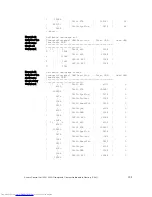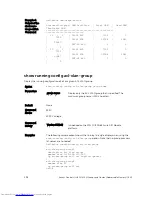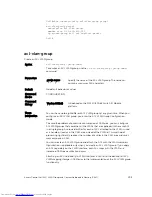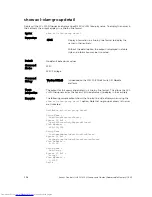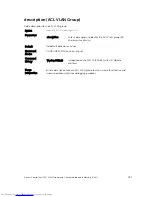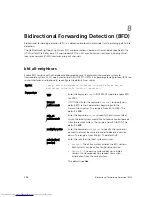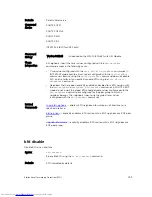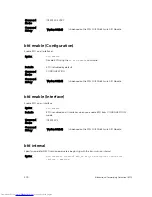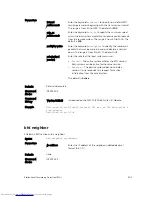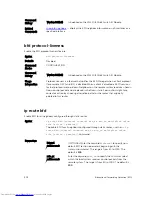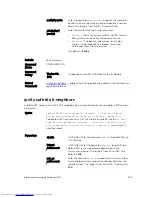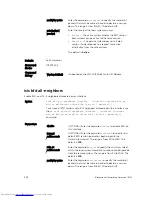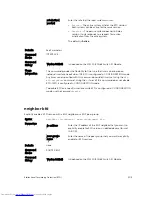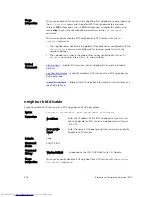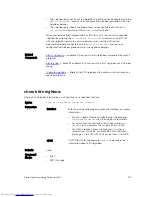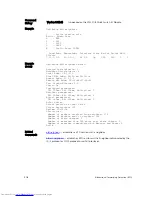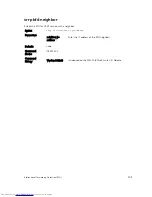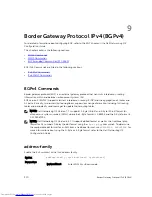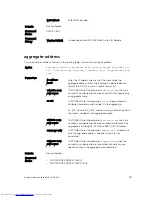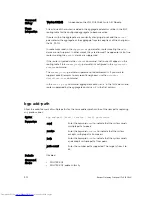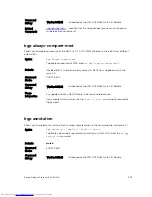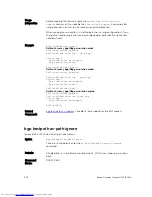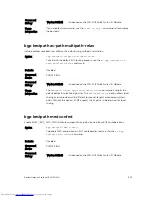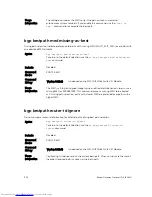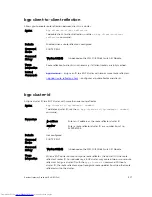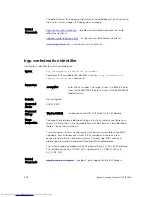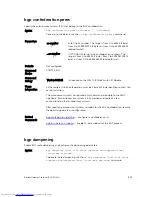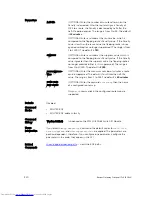
• The neighbor does not inherit the global BFD disable values configured with the
bfd all-neighbor
command or configured for the peer group to which the
neighbor belongs.
• The neighbor only inherits the global timer values configured with the
bfd
all-neighbor
command: interval, min_rx, and multiplier.
When you remove the Disabled state of a BFD for a BGP session with a specified
neighbor by entering the
no neighbor bfd disable
command, the BGP link
with the neighbor returns to normal operation and uses the BFD session
parameters globally configured with the
bfd all-neighbor
command or
configured for the peer group to which the neighbor belongs.
Related
Commands
bfd all-neighbors
— enables BFD sessions with all neighbors discovered by Layer 3
protocols.
bfd neighbor
— explicitly enables a BFD session with a BGP neighbor or a BGP peer
group.
show bfd neighbors
— displays the BFD neighbor information on all interfaces or a
specified interface.
show bfd neighbors
Display BFD neighbor information on all interfaces or a specified interface.
Syntax
show bfd neighbors
interface
[detail]
Parameters
interface
Enter one of the following keywords and slot/port or number
information:
• For a 10-Gigabit Ethernet interface, enter the keyword
tengigabitethernet
then the slot/port information.
• For a port-channel interface, enter the keyword
port-
channel
then a number. The range is from 1 to 128.
• For VLAN interfaces, enter the keyword
vlan
then a
number from 1 to 4094. For ExaScale VLAN interfaces,
the range is 1 to 2730 (VLAN IDs can be from 0 to 4093).
detail
(OPTIONAL) Enter the keyword
detail
to view detailed
information about BFD neighbors.
Defaults
none
Command
Modes
• EXEC
• EXEC Privilege
Bidirectional Forwarding Detection (BFD)
307

